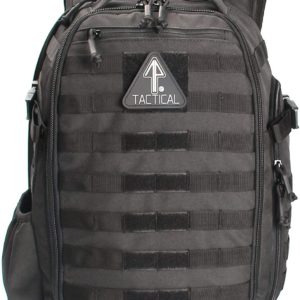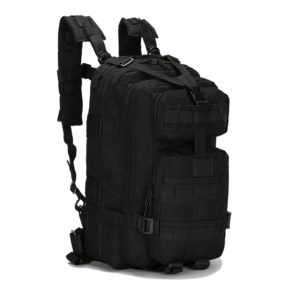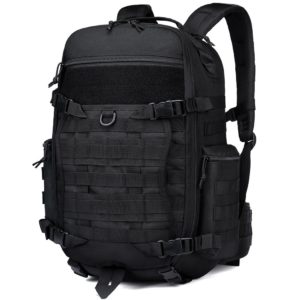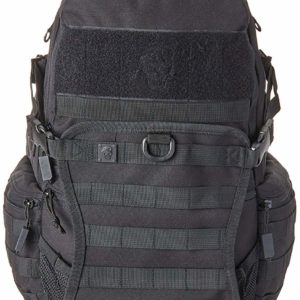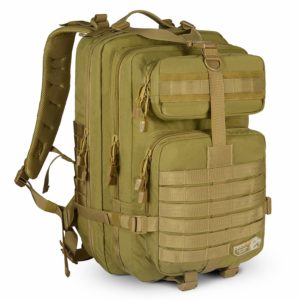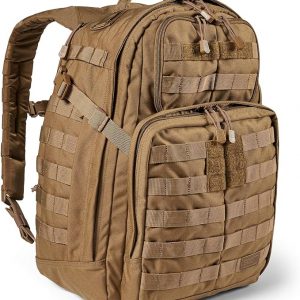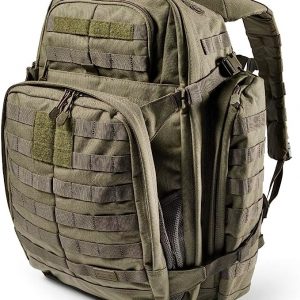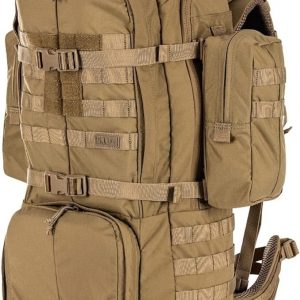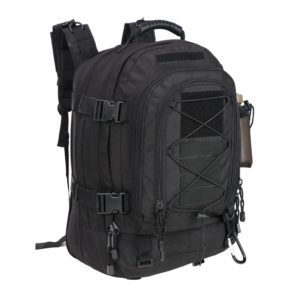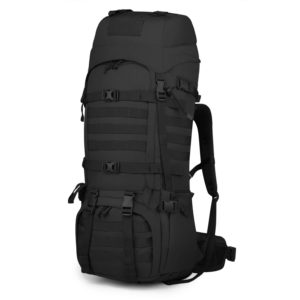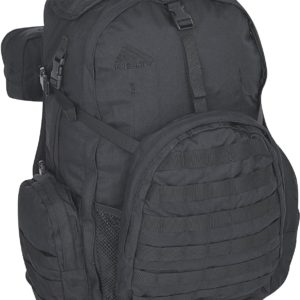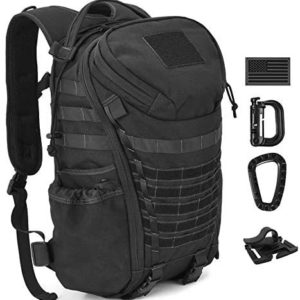-
Military Tactical Backpacks5.11 Tactical Rush 24 2.0 Backpack – 37L – Kangaroo: Ideal for Hiking, Travel, and Everyday Carry$135.00
-
Sale3 Day Assualt Backpacks5.11 Tactical Rush 72 2.0 Backpack – Military Molle Pack with CCW and Laptop Compartment$172.00 $185.00 -7%
-
Military Tactical Backpacks5.11 Tactical RUSH100 Kangaroo Backpack – Versatile 60L Tactical Gear Bag$255.00
-
What is a military backpack called?
Military backpacks have a lot of different names, depending on their size, function, style and what specific military field they come from. Typically they can be called rucksacks, knapsacks, hiking packs or just packs. They also usually all consist of a one or two strap structure, with a frameless body and some sort of padding for comfort wearing while on the back. That being said, for the more adventurous, there are plenty of packs with huge amounts of storage space that need a metal framework to support the weight they are bearing, as well as provide assistance to the bag carrier.
-
How to choose the best military backpack?
There's a few different things you should be considering when deciding on a military backpack, but there is no one pack for everyone. One of the most important things to consider is comfort - if you're planning on using the backpack for any duration, you'll want to make sure it has adequate padding to keep you comfortable. Next you should be thinking about the practicalities of how much it can carry, and whether there's enough storage space for your needs. Often understated is also the aesthetic appeal of the backpack - no one wants to look like they're carrying around their grandmother's handbag, so pick one that looks good to you. Outside of these elements, it's really down to what purpose you want to use the backpack for - if you need to carry water, if the pack itself needs to be waterproof or even if you find it more comfortable with one strap or two. Always think about the situations you'll find yourself in with the pack before buying it.
-
How much do military backpacks weigh?
Military backpacks vary in their weights depending on the materials they're made of and obviously how much you've got in the pack. The modern US soldier typically carries a pack of around 60 pounds - but with all the additional equipment and gear, that can easily get up to double (120 pounds). Without gear, most modern backpacks are made from lightweight, unbreakable material, which offers the best scenario in terms of carry comfort and robustness. A smart thing to do will be to trial carrying around some different weights on your back to work out how much is too much for you.
-
What's the difference between rucksacks and backpack?
The two terms rucksack and backpack are often interchangeable, so there's not a huge difference between them at all. That being said, in the realm of military gear, what's typically named a backpack is of a larger variety than what is called a rucksack. A rucksack could be a small 1 or 2 day pack, whereas a backpack covers anything up to a 7 day ultimate survival pack.
-
What should you pack in a survival backpack?
This is always going to be a question that people have different answers for. And of course, depending on your specific situation, you'll want to be packing different things. That being said, there are a few staples that you should definitely consider including in your own survival pack. First of all, an interior dry sack to keep all of your stuff dry is a great first move. There's nothing worse than being prepared for anything and then it rains and all of your gear gets soaked. A hydration system will be the next important thing - usually a bladder with a hydration valve works best; some backpacks already come with these inbuilt as standard. If you're going to be spending nights outside, then you'll also want to make sure you've got a good tent and sleeping bag. In a survival situation, nothing compares to getting good rest to ensure both your body and brain are functioning at full capacity. Having a good knife is another absolute must. Knives have so many utilities and are very easy to pack. Plus, if you find yourself in close quarter combat with dinner, they make for a great self-defence tool as well as cutlery and butchering device. Cordage or rope should be next on your list. If you're out in the wilderness, nothing beats having a long line of cordage - there are literally thousands of different things you can do with a good length of cord. We mentioned a knife earlier, and if you've got the skills you can use a knife to make fire - but what's easier is carrying your own fire starter. Having a flint and striker beats a box of matches any day because you'll never have to worry about them being compromised in the wet. Outside of these essentials, you'll also want to make sure you've got a compass/map, first aid kit, cooking equipment, a change of clothes and one of our must includes is a good book. When times get tough, it's always important to keep your frame of mind positive, and reading is the perfect way to keep you thinking forward, not backward.
